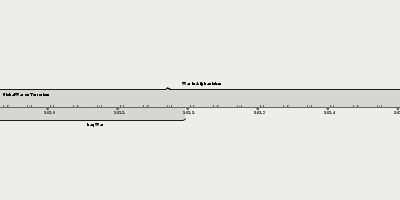mar 23, 2010 - Affordable Care Act
Description:
The Affordable Care Act (ACA), formally known as the Patient Protection and Affordable Care Act (PPACA) and informally as Obamacare (Pub. L. 111–148, 124 Stat. 119 through 124 Stat. 1025), is a landmark U.S. federal statute enacted by the 111th United States Congress and signed into law by President Barack Obama on March 23, 2010. Together with amendments made to it by the Health Care and Education Reconciliation Act of 2010, it represents the U.S. healthcare system's most significant regulatory overhaul and expansion of coverage since the enactment of Medicare and Medicaid in 1965. Most of the act remains in effect.The ACA's major provisions came into force in 2014. By 2016, the uninsured share of the population had roughly halved, with estimates ranging from 20 to 24 million additional people covered. The law also enacted a host of delivery system reforms intended to constrain healthcare costs and improve quality. After it came into effect, increases in overall healthcare spending slowed, including premiums for employer-based insurance plans.
The increased coverage was due, roughly equally, to an expansion of Medicaid eligibility and changes to individual insurance markets. Both received new spending, funded by a combination of new taxes and cuts to Medicare provider rates and Medicare Advantage. Several Congressional Budget Office (CBO) reports stated that overall these provisions reduced the budget deficit, that repealing ACA would increase the deficit, and that the law reduced income inequality by taxing primarily the top 1% to fund roughly $600 in benefits on average to families in the bottom 40% of the income distribution.
The act largely retained the existing structure of Medicare, Medicaid, and the employer market, but individual markets were radically overhauled. Insurers were made to accept all applicants without charging based on preexisting conditions or demographic status (except age). To combat the resultant adverse selection, the act mandated that individuals buy insurance (or pay a monetary penalty) and that insurers cover a list of "essential health benefits". Young people were allowed to stay on their parents' insurance plans until they were 26 years old.
Before and after its enactment the ACA faced strong political opposition, calls for repeal, and legal challenges. In the Sebelius decision, the Supreme Court ruled that states could choose not to participate in the law's Medicaid expansion, but otherwise upheld the law. This led Republican-controlled states not to participate in Medicaid expansion. Polls initially found that a plurality of Americans opposed the act, although its individual provisions were generally more popular. By 2017, the law had majority support. The Tax Cuts and Jobs Act of 2017 set the individual mandate penalty at $0 starting in 2019.
Added to timeline:
Date:
mar 23, 2010
Now
~ 15 years ago
